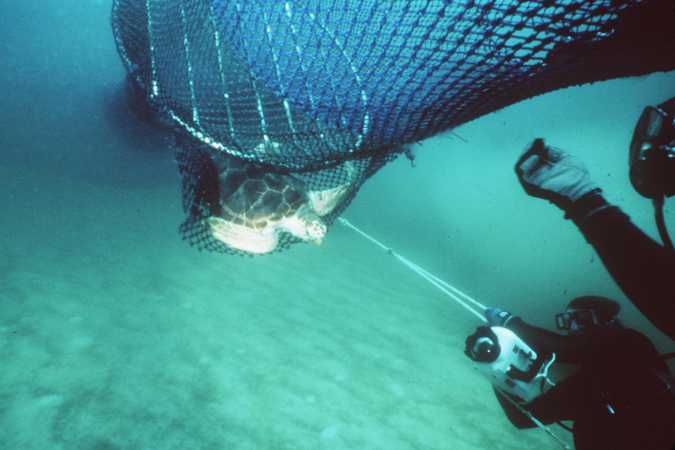NEW ORLEANS — A key industry panel wants Louisiana lawmakers to repeal a 1987 law that prohibits state fisheries agents from enforcing federal rules designed to protect sea turtles by outfitting shrimpers’ nets with special escape hatches for threatened and endangered turtles.
On Wednesday, the Louisiana Shrimp Task Force voted 7-0 in favor of repealing the state law. The task force now wants the Louisiana Legislature to repeal the ban on state enforcement of the federal laws.
Louisiana’s shrimp industry has long been criticized by environmental groups for refusing to enforce the federal rules requiring the use of turtle excluder devices, also known by their acronym TEDs.
But the federal rules have long been challenged by shrimpers who say they are costly and unnecessary.
Mark Abraham, the task force’s chairman, said the panel has lined up support from state lawmakers willing to sponsor a bill repealing the enforcement ban in the upcoming legislative session. He said repealing the 1987 law will prove the Louisiana shrimp industry is interested in protecting threatened and endangered sea turtles.
“It will send a message to the rest of the country that we are serious about sustainability,” Abraham said.
The devices allow turtles caught in shrimp nets to swim out.
Carole Allen, the Turtle Island Restoration Network’s Gulf director, welcomed the announcement but cautioned that a previous effort to repeal the law last year failed. She said the lack of enforcement in Louisiana endangers turtles that routinely cross through the state’s waters.
“It’s a huge missing link in the protection of turtles,” she said. “The turtles drown without TEDs.”
Shrimpers see it differently. Abraham said Louisiana shrimpers abide by the turtle excluder laws and that repealing the law would be symbolic.
The shrimp task force is made up of shrimp processors, dock owners, fishermen and government officials. It makes recommendations to government agencies.
In its resolution, the panel said it supports repealing the law for two years and then reviewing whether to re-instate the enforcement ban or not.




